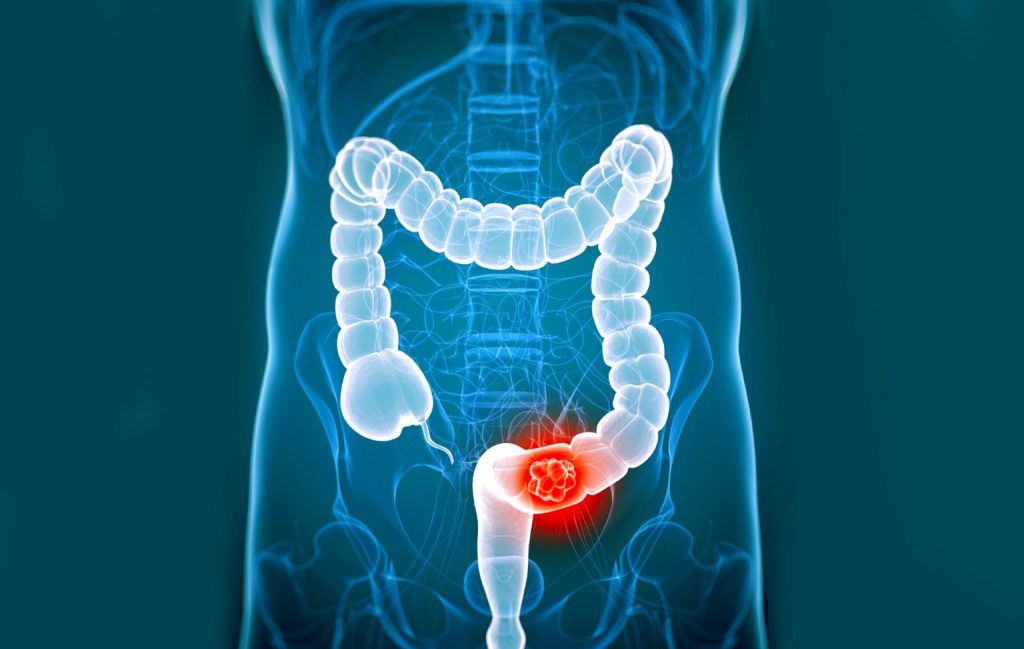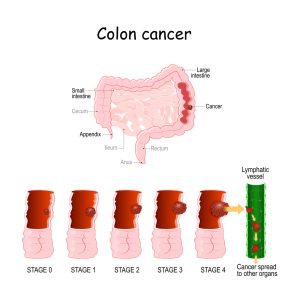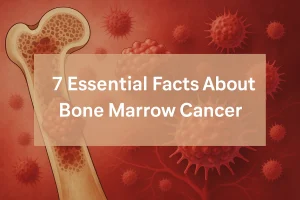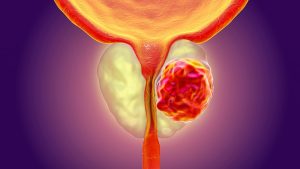
Colon Cancer Diet: What to Eat During Chemotherapy, Surgery & Recovery
Keeping good nutrition during colon cancer treatment is about more than just a balanced diet. It also means making sure your body absorbs important nutrients well. Colon cancer or its treatment can affect how the colon absorbs fluids and minerals. This can lead to serious nutritional issues.
Nausea, vomiting, diarrhea, and appetite loss are side effects of chemotherapy, radiation, and surgery. These side effects can increase the risk of malnutrition, dehydration, and treatment intolerance, particularly in patients with gastrointestinal cancers. That is why a targeted nutritional strategy is critical for promoting recovery and enhancing outcomes.
Why Nutrition Matters During Colon Cancer Treatment
Cancer treatment places extreme demands on the body. Eating well can help patients:
- Maintain a healthy weight.
- Support immune function.
- Preserve energy and muscle mass.
- Tolerating aggressive treatment regimens.
- Improve the overall quality of life.
Each patient’s dietary requirements vary depending on their treatment phase, side effects, and existing conditions like obesity or diabetes.
General Dietary Guidelines for Colon Cancer Patients
The American Cancer Society recommends that cancer patients consume a well-balanced mix of
- Lean proteins
- Healthy fats
- Whole-grain carbohydrates
- Plenty of fruits and vegetables
- Staying hydrated with fluids and minerals.
Limit or avoid red and processed meats, refined sugars, and saturated fats as they may cause inflammation and may increase the risk of certain cancers.
Maintaining a Healthy Weight
- Obesity and unintentional weight loss both hurt treatment outcomes.
- Weight loss can cause treatment delays, side effects, and hospitalization.
- Obesity is linked to higher recurrence rates and poorer outcomes.
Note: 25–30 calories per kilogram of body weight per day is a general recommendation, with no more than 25% of calories coming from fat. For a customized plan, always seek advice from a dietitian.
How to get essential Nutrients for Colon Cancer Patients?
- Electrolytes: Leafy greens, bananas, avocados, nuts, legumes, and potatoes have important minerals. These include calcium, magnesium, potassium, and sodium. They help control muscle contractions and keep hydration levels right.
- Protein: You have the option of eggs, poultry, fish, beans, nuts, or tofu. These foods help your immune health and recovery. Avoid red and processed meats. Studies show they may cause cancer.
- Fiber: Include foods high in fiber, like whole grains, fruits, vegetables, and legumes. They aid digestion but might need to be limited during diarrhea.
- Carbohydrates: Oats, brown rice, barley, sweet potatoes, and whole fruit are complex carbs that provide sustained energy and fiber.
- Healthy Fats: Olive oil, nuts, avocados, and fatty fish are full of nutrients and energy. They help reduce inflammation and improve brain function.
- Vitamins: Vitamins D, A, C, and the B-complex are crucial. You can get them from your diet. Sometimes, you may need supplements based on your blood test results.
- Hydration: Aim for 8–10 glasses of water or low-sugar fluids daily. Increase if you experience vomiting, diarrhea, or have a colostomy.
What to Eat During Colon Cancer Treatment
After surgery, doctors use chemotherapy and sometimes radiation therapy to remove any remaining cancer cells. A multi-part treatment plan is usually used for cancer. However, each stage has different nutritional needs. Below are some dietary recommendations to aid in a faster recovery.
Before and After Surgery
Follow ERAS (Enhanced Recovery After Surgery) protocols:
- High-nutrient, omega-3 drinks before surgery
- Carbohydrate drinks immediately before the procedure
- Clear liquids within 24 hours post-op
- Transition to solids in 2–3 days
Low-fiber foods are recommended initially. Avoid narcotic painkillers that delay digestion; use ibuprofen when possible.
Diet for chemotherapy:
Chemotherapy comes with side effects such as nausea, taste changes, diarrhea, constipation, and mouth sores.
Tips:
- Foods high in calories, such as fish, poultry, and eggs
- Low-fiber foods are recommended when you have diarrhea.
- Hydration is essential; if necessary, use oral rehydration solutions (ORS).
- Consult your care team about medications to manage nausea.
During Radiation Therapy

Used mainly for rectal cancer, radiation can cause rectal irritation and diarrhea.
Diet recommendations:
Follow a low-residue diet during treatment, which typically means avoiding high-fiber foods like whole grains, nuts, seeds, and raw fruits or vegetables with skin. Instead, go for easily digestible options such as white bread, refined pasta, and peeled or cooked fruits and vegetables.
The Significance of Personalized Nutritional Guidance
Work closely with an oncology-registered dietitian for:
- Tracking weight and adverse effects
- Creating individualized meal plans
- Avoid malnutrition, as it can weaken immunity, affect wound healing, and increase side effects.
- When necessary, taking vitamins and nutrients as supplements
Note: Naturopaths and mental health professionals can provide support for both the physical and emotional aspects of eating disorders during treatment. Eating difficulties can lead to frustration, loss of enjoyment, and social isolation. The right support can improve both nutrition and overall well-being.
Conclusion
Good nutrition is a key part of colon cancer treatment. During therapy, it helps control side effects, strengthens immunity, and supports your body. Whether you are undergoing radiation, chemotherapy, or surgery, a customized diet plan can help you recover more quickly.
You will be able to meet your specific nutritional needs if you work with a skilled dietitian. Remember—eating well is not just about food; it’s about healing and strength through every stage of treatment.
FAQs
What foods are best during colon cancer treatment?
Choose lean proteins (chicken, fish), complex carbohydrates (oatmeal, brown rice), fruits, cooked vegetables, and healthy fats such as avocado and olive oil. Drink plenty of water and electrolyte drinks with low sugar.
Should I avoid fiber during treatment?
Fiber is beneficial but may need to be reduced if you’re experiencing diarrhea or irritation from treatment. In those cases, doctors may prescribe low-fiber foods temporarily.
Can sugar feed colon cancer?
There’s no conclusive evidence that sugar directly feeds cancer. However, excessive sugar can lead to weight gain and poor blood sugar control, which may affect outcomes.
Is it safe to take supplements during treatment?
Some supplements may help, especially vitamin D, but always consult your oncologist or dietitian before starting any new supplements during treatment.
How can I deal with a loss of appetite?
Eat small, frequent meals. Choose high-calorie, nutrient-dense foods. Bland, easy-to-digest items like mashed potatoes, eggs, or smoothies can help. Ask your doctor about appetite-stimulating medications if needed.
Do I need a dietitian during colon cancer treatment?
Yes, working with a registered dietitian, particularly one experienced in oncology, can help you manage treatment side effects, prevent malnutrition, and ensure a balanced diet tailored to your needs.
- What’s the difference? Chemotherapy drugs
- What’s the difference? Ovarian, fallopian tube and primary peritoneal cancers






